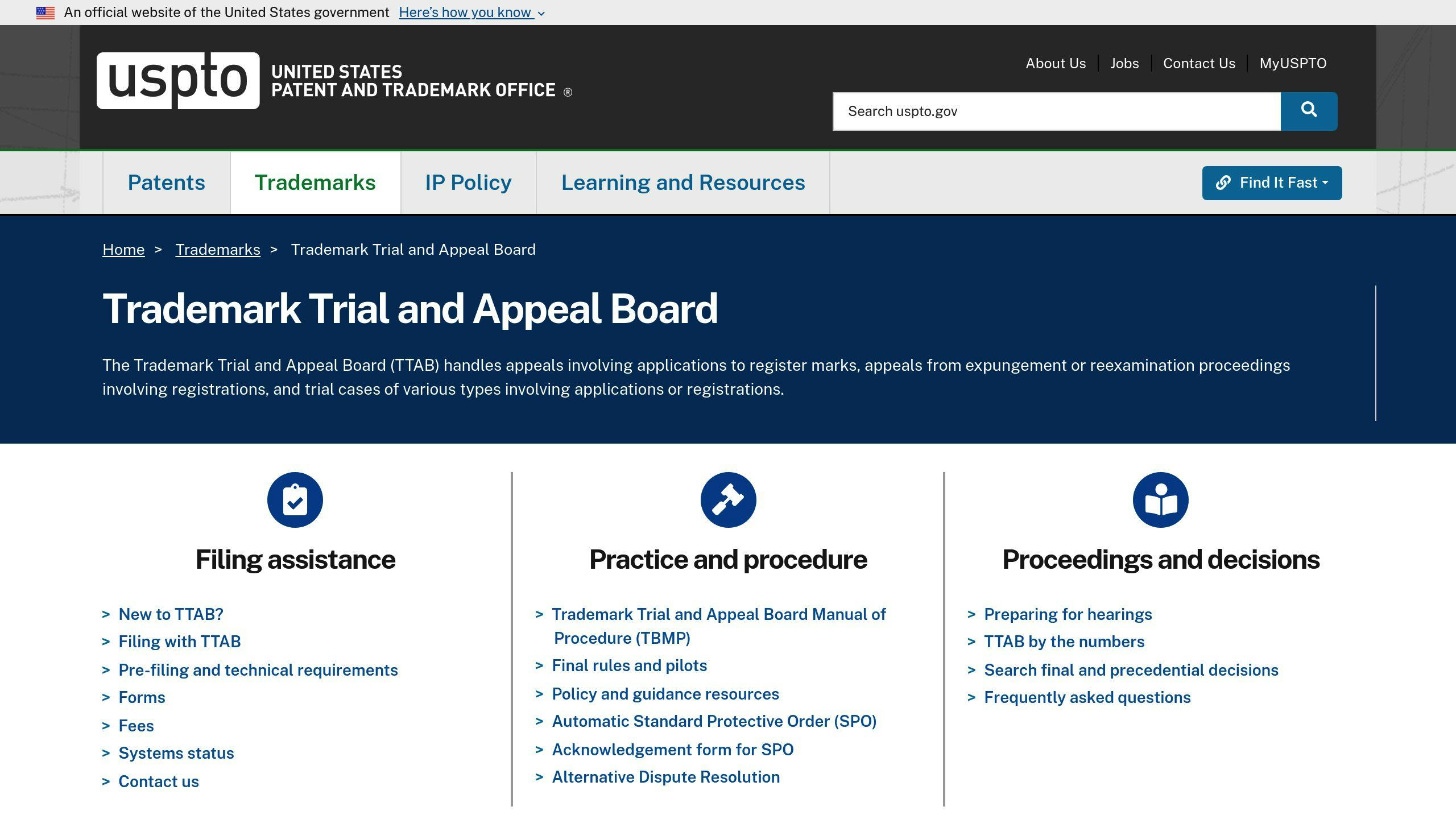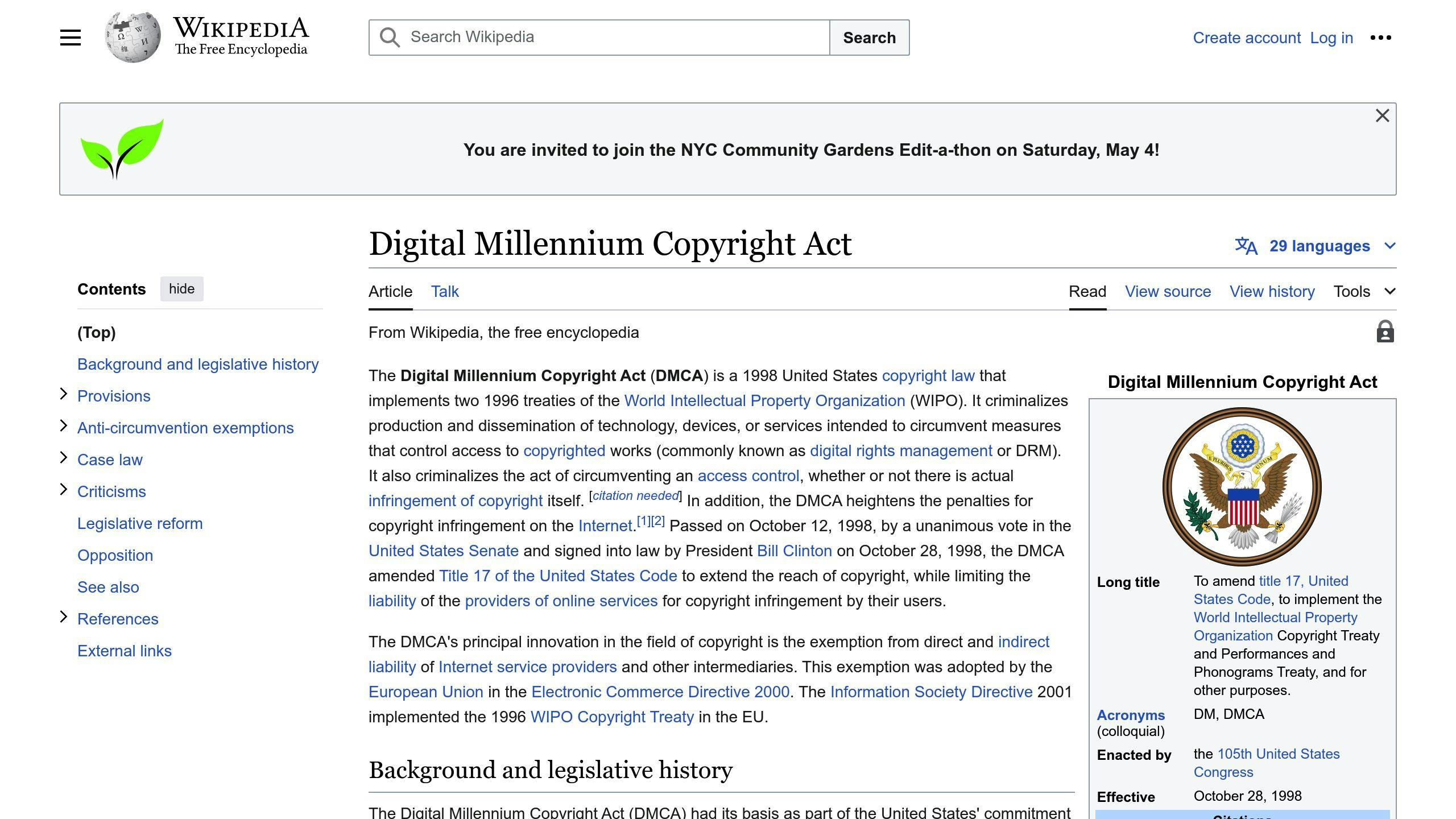Here’s a quick overview of key points on cannabis IP enforcement:
| IP Type | Main Challenges | Key Strategies |
|---|---|---|
| Trademarks | Federal illegality, state law differences | State-level registration, common law rights |
| Patents | Limited federal court access, high costs | Careful planning, alternative dispute resolution |
| Trade Secrets | Risk of theft, need for strict protection | NDAs, limited access, encryption |
| Copyrights | Online infringement, proving ownership | DMCA takedowns, registration with Copyright Office |
Key trends and issues:
- Growing importance of IP as cannabis industry expands
- Conflict between federal and state laws complicates enforcement
- New technologies like blockchain emerging for IP protection
- Courts still developing approach to cannabis IP cases
To protect cannabis IP:
- Create a comprehensive IP plan
- Stay updated on changing laws
- Use state-level protections where possible
- Consider alternative enforcement methods
- Budget for IP protection costs
As cannabis laws evolve, expect clearer IP rules and potentially easier federal protection if legalized nationwide.
Related video from YouTube
Types of Cannabis IP Rights
Common IP Types in Cannabis
Cannabis companies can protect their ideas and creations through these IP rights:
| IP Type | What it Protects | Examples |
|---|---|---|
| Trademarks | Brand identifiers | Company names, logos, slogans |
| Patents | New inventions | Cannabis strains, growing methods, extraction techniques |
| Copyrights | Original works | Books, websites, marketing materials |
| Trade Secrets | Private business info | Recipes, manufacturing processes, business plans |
These IP types help companies build their brand, stop others from copying their work, and stay ahead in the market.
Specific IP Challenges for Cannabis
The cannabis industry faces special IP issues due to complex laws:
-
Federal illegality: Cannabis is illegal under federal law, making it hard to get federal trademark protection.
-
Different state laws: Cannabis rules change from state to state, causing confusion for businesses in multiple areas.
-
Limited federal court use: Cannabis companies might have trouble defending their IP rights in federal court because of the plant’s illegal status.
Despite these problems, cannabis companies can still protect their IP through:
- Careful planning
- Legal agreements
- State-level protections
Legal Framework for Cannabis IP
Federal and State Law Differences
Cannabis IP laws are complex due to conflicts between federal and state regulations:
| Level | Cannabis Status | IP Protection |
|---|---|---|
| Federal | Illegal | Limited trademark protection |
| State | Varies (legal in many states) | State-level trademark registration available |
Key points:
- The USPTO often rejects cannabis trademark applications due to federal illegality
- Some companies get federal trademarks for related products (e.g., paraphernalia)
- State trademark systems offer limited protection within state borders
Recent Legal Changes
New laws have changed the cannabis IP landscape:
- 2018 Farm Bill: Legalized hemp, allowing federal trademark registration for hemp products
- State laws: Some states now allow cannabis trademark registration (e.g., California’s Senate Bill 185)
Global IP Laws and Cannabis
International cannabis IP protection faces challenges:
| Aspect | Details |
|---|---|
| Paris Convention | Allows multi-country trademark registration, but requires home country registration |
| Canada | Cannabis Act permits cannabis trademark registration |
| European Union | Framework for cannabis trademark registration through EU Intellectual Property Office |
The conflict between U.S. federal and state laws makes international protection difficult for American cannabis companies.
How to Enforce Trademarks
Watching for Trademark Misuse
Cannabis companies need to keep an eye out for trademark misuse to protect their brand. Look for:
- Competitors using similar logos, names, or slogans
- Others using your trademark without permission
- Online misuse, like fake social media accounts
Use tools like Google Alerts to find potential issues early.
Writing Cease and Desist Letters
If someone is using your trademark without permission, a cease and desist letter is often the first step. When writing one:
| Key Points | Details |
|---|---|
| State the problem | Explain what they’re doing wrong |
| Show ownership | Provide proof you own the trademark |
| Ask for action | Tell them what you want them to do |
| Set a deadline | Give a date for them to respond |
It’s best to have a lawyer help you write this letter.
TTAB Processes

The Trademark Trial and Appeal Board (TTAB) helps solve trademark disputes. Here’s what you need to know:
- To oppose a trademark application: File within 30 days of its publication
- To cancel a registered trademark: File a petition explaining why it should be canceled
- To appeal decisions: Follow TTAB rules for filing deadlines and paperwork
TTAB processes can be tricky, so it’s smart to work with a lawyer who knows these rules.
Federal Court Cases
Sometimes, trademark disputes end up in federal court. This involves:
1. Filing a complaint
2. Sharing information and evidence
3. Going to trial
Court cases can take a long time and cost a lot, so think carefully before going this route.
State-Level Enforcement
Protecting your trademark at the state level is also important. This can include:
| Action | Description |
|---|---|
| State registration | Register your trademark in individual states |
| State court cases | File lawsuits in state courts |
| Work with state officials | Team up with state agencies to stop misuse |
Each state has different rules, so it’s best to work with a lawyer who knows local laws.
How to Enforce Patents
Finding Patent Infringement
Cannabis companies need to watch for patent infringement. Look for:
| What to Watch | Examples |
|---|---|
| Similar products | Competitors making or selling products like yours |
| Use of patented processes | Others using your methods without permission |
| Online infringement | Fake products or websites |
Use patent search engines to spot issues early.
Steps Before Filing a Lawsuit
If someone is using your patent without permission, try these steps first:
1. Send a cease and desist letter
Tell them to stop using your technology.
2. Try to negotiate
Work with the other party to find a solution.
3. File a complaint with the USPTO
If the issue is about a patent application, tell the USPTO.
It’s best to work with a lawyer for these steps.
Patent Lawsuits in Federal Court
If talking doesn’t work, you might need to go to court. This involves:
1. Filing a complaint
Explain how someone is using your patented technology without asking.
2. Sharing information
Show proof of the infringement and your patent.
3. Going to trial
Present your case to a judge or jury.
Court cases take time and money, so think carefully before choosing this option.
Other Ways to Solve Patent Disputes
Instead of going to court, you can try:
| Method | Description |
|---|---|
| Mediation | Work with a neutral person to find a solution |
| Arbitration | Let a neutral person make a decision |
| Post-grant review | Ask the USPTO to check if a patent is valid |
These options can be faster and cheaper than a lawsuit, but they’re not always possible.
Protecting Trade Secrets
Ways to Keep Trade Secrets Safe
Cannabis companies need to protect their trade secrets to stay ahead. Here are some key ways to do this:
| Method | How it works |
|---|---|
| Non-disclosure agreements | Make people sign papers saying they won’t share secrets |
| Limit access | Only let certain people see or use secret information |
| Use encryption | Scramble digital secrets so others can’t read them |
| Lock things up | Keep physical secrets in safe places |
| Train workers | Teach employees how to handle secrets properly |
These steps help stop others from taking or misusing trade secrets.
What to Do if Trade Secrets are Stolen
If someone steals your trade secrets, act fast:
1. Look into it: Find out what happened and how bad it is
2. Call the police: Tell them about the theft and help them investigate
3. Tell people who need to know: Let workers and partners know what’s going on
4. Think about legal action: You might need to sue the person who took your secrets
Quick action can help stop more problems and protect your ideas.
Legal Options for Trade Secret Theft
If someone steals your trade secrets, you have some choices:
| Option | What it means |
|---|---|
| Sue them | Take the thief to court to get money or make them stop |
| Press charges | Ask the police to arrest the thief |
| Use arbitration | Have a neutral person decide what should happen |
| Try mediation | Work with the thief to find a solution without going to court |
Talk to a lawyer to figure out the best way to protect your rights.
sbb-itb-430f9b7
Copyright in Cannabis Marketing
Spotting Copyright Infringement
Cannabis companies need to watch for others using their original work without permission. This includes:
- Logos and brand designs
- Product packaging
- Website content
- Social media posts
- Ads and marketing materials
If a company thinks someone is using their work without asking, they should take steps to protect it.
Using DMCA Takedown Notices

A DMCA takedown notice is a way to ask websites to remove content that uses your work without permission. Here’s how to use one:
| Step | Action |
|---|---|
| 1 | Find where your work is being used |
| 2 | Take screenshots and note web addresses |
| 3 | Write a notice with details about your work and the misuse |
| 4 | Send the notice to the website or platform |
Copyright Lawsuit Approaches
If a takedown notice doesn’t work, a company might need to go to court. Here’s what to do:
1. Register your work
Sign up your work with the U.S. Copyright Office.
2. Gather proof
Collect evidence that you own the work and how it’s being misused.
3. Write a complaint
Make a formal document explaining the problem.
4. File with the court
Take your complaint to the federal court where the misuse happened.
Going to court can be costly and time-consuming. It’s best to try other ways to fix the problem first.
| Pros of Lawsuits | Cons of Lawsuits |
|---|---|
| Can stop misuse | Expensive |
| May get money for damages | Takes a long time |
| Shows you protect your work | Might not win |
New Trends in Cannabis IP Enforcement
Effects of Cannabis Legalization
As more states make cannabis legal, companies are working harder to protect their brands, products, and ideas. This is happening because the industry is growing and becoming more competitive.
Some key changes:
- More companies are trying to register trademarks
- There are more lawsuits about patents
- It’s taking longer to get trademarks approved
New Tech for IP Protection
Companies are using new tools to protect their ideas:
| Technology | How it helps |
|---|---|
| Blockchain | Tracks products to stop fake ones |
| AI | Finds people using brands without permission |
These tools help companies spot problems quickly and take action.
How Courts View Cannabis IP Cases
Courts are still figuring out how to handle IP cases in the cannabis industry. Here are some key points:
| Issue | Court approach |
|---|---|
| Federal vs. state law | Some courts say state law can apply |
| Trademark registration | USPTO won’t register cannabis trademarks, but some state courts allow enforcement |
As more cases come up, courts will give more guidance on how to handle these issues.
Overall, the cannabis industry is changing how it protects IP. Companies are using new methods to guard their brands and ideas. Courts are still working out how to deal with these cases, but they’re starting to provide some answers.
Tips for Cannabis IP Enforcement
Creating a Full IP Plan
A good IP plan helps cannabis companies protect their brands, products, and ideas. Here’s what to include:
| IP Type | What to Do |
|---|---|
| Trademarks | Register for brand names and logos |
| Patents | Apply for new products and methods |
| Copyrights | Register original works like writing and art |
| Trade Secrets | Keep recipes and business plans private |
Enforcing Rights While Keeping Allies
When protecting your IP, it’s important to stay on good terms with other companies:
- Be polite when talking about IP issues
- Clearly explain your IP rights
- Make sure your actions are reasonable
This way, you can protect your ideas without making enemies in the industry.
Setting a Budget for IP Protection
Protecting IP costs money. Here’s what to plan for:
| Cost Type | Description |
|---|---|
| Trademark Fees | Paying to register with the USPTO |
| Patent Fees | Costs for patent applications |
| Copyright Fees | Registering with the U.S. Copyright Office |
| Legal Costs | Lawyer fees and court costs if needed |
Problems in Cannabis IP Enforcement
Dealing with Federal-State Law Gaps
Cannabis companies face challenges due to differences between federal and state laws. This makes IP protection tricky.
| Federal Law | State Law |
|---|---|
| Bans cannabis use and sale | Some states allow cannabis use and sale |
| No federal trademark for cannabis marks | Some states offer trademark registration |
To protect their IP, cannabis companies can:
- Get state trademarks where cannabis is legal
- Use common law trademark rights
- Try other ways to protect IP, like trade secrets and copyrights
Fighting Fake Cannabis Products
Fake cannabis products can hurt customers and damage company reputations. To fight this, companies can:
- Watch for fake products in the market
- Tell the police about suspicious items
- Use special marks or numbers to prove products are real
- Teach customers how to spot real products
Handling Public Opinion
What people think matters in the cannabis industry. To keep a good image, companies can:
- Talk with customers on social media and at events
- Be open about their products and business
- Build a good company culture
- Answer public concerns quickly and well
What’s Next for Cannabis IP
Possible Changes in IP Laws
As the cannabis industry grows, IP laws might change too. Here are some possible updates:
| Possible Change | What It Means |
|---|---|
| New trademark rules | Easier to register cannabis brand names |
| More patent options | Better protection for new ideas |
| Clearer trade secret laws | Easier to keep business secrets safe |
The 2023 Farm Bill might change how the Trademark Office handles cannabis trademarks. This could make it easier for companies to protect their brand names.
If Cannabis Becomes Legal Nationwide
If the U.S. government makes cannabis legal, IP rules will likely change a lot:
1. More Patent Protection
Companies could get stronger protection for their new ideas.
2. Clearer Trademark Rules
It would be easier to understand how to register and protect brand names.
3. Better Trade Secret Protection
Companies could keep their business secrets safer.
Getting Ready for Future Issues
Cannabis companies should prepare for upcoming IP challenges:
| What to Do | Why It Helps |
|---|---|
| Keep up with new IP laws | Know what’s changing |
| Plan how to protect your ideas | Keep your secrets safe |
| Work with IP lawyers | Get expert help when you need it |
Wrap-up
Key Points Review
Cannabis companies need to protect their ideas and brands. Here’s what to remember:
| IP Type | Challenges | Tips |
|---|---|---|
| Trademarks | Hard to get federal protection | Try state registration |
| Patents | Can be slow and expensive | Plan ahead, be patient |
| Trade Secrets | Need to keep info private | Use agreements, limit access |
| Copyrights | Protects creative works | Register important designs |
Keeping Up with IP Changes
The cannabis industry is always changing. To stay on top of things, companies should:
- Watch for new IP laws
- Talk to lawyers about following rules
- Make plans to protect their ideas
- Learn about new trends in cannabis
Companies that pay attention to these things can better protect their work and stay ahead in the market.
Related posts
- Balancing Compliance & Creativity in Cannabis Marketing
- Cannabis Trademark Basics: Protecting Your Brand
- Cannabis Product Naming Laws by State 2024
- Cannabis Blog Content Strategy: FAQs

